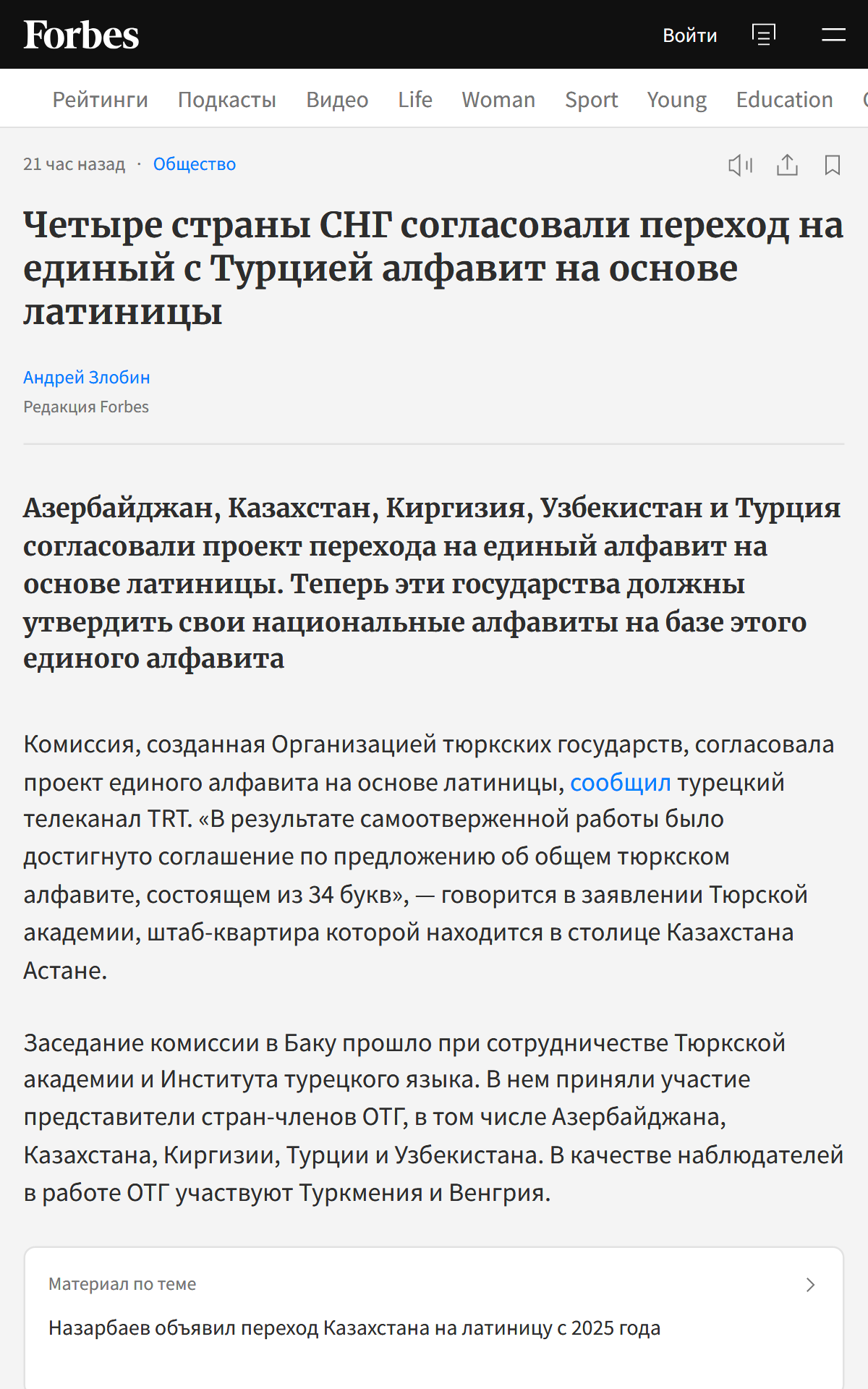In this post on Mastodon, Полиция грусти offers ironic reflections on the possibility of the Russian language transitioning to the Latin alphabet. The idea, expressed in a sarcastic tone, touches not only on alphabetic reform but also on a deeper issue — Russia's potential distancing from its historical and cultural heritage. The switch to the Latin script symbolizes an attempt to conform to Western standards, which Russia has previously rejected.
This could be seen as a step toward gradually weakening the influence of Russia’s past and paving the way for integration into a globalized world. At the same time, such a shift would be a shock to Russian national identity, as the Cyrillic alphabet holds significant symbolic value. The author's irony lies in the paradox of this scenario, especially given Russia's officially antagonistic policies toward the West.
The post raises the question of whether Russia is truly prepared for such radical changes and whether this would be perceived as a positive move toward modernization or as a threat to national culture.
Key points:
- The switch to the Latin alphabet as a metaphor for rejecting traditions and national identity.
- A sarcastic response to the potential shifts in Russia’s cultural space.
- The contradiction between Russia's official antagonism toward the West and possible aspirations for globalization.
Conclusion:
The post reflects a deep internal conflict between the desire for modernity and the need to preserve traditions. The author points to the absurdity of potential Latinization, portraying it as an ironic step that could have serious cultural consequences.
Hashtags:
#RussianAlphabet #CyrillicVsLatin #RussianCulture #Globalization #NationalIdentity #CulturalShift #Irony #PoliticalSatire #AlphabetReform #RussiaAndTheWest #CulturalConsequences
Bibliography:
- Pavlenko, A. (2012). The Role of Writing Systems in Shaping Ethnic Identity: The Case of the Soviet Union and Post-Soviet Russia. Written Language & Literacy, 15(2), 237-272.
- Ruder, S. (2018). Scripts of the World: Cyrillic and the Russian Identity. Slavic Review, 77(3), 614-631.
- Gorham, M. (2014). After Newspeak: Language Culture and Politics in Russia from Gorbachev to Putin. Cornell University Press.
- Woolhiser, C. (2012). Linguistic Nationalism and the Politics of Orthography: The Case of the Cyrillic/Latin Divide in the Slavic World. Nationalities Papers, 40(5), 667-688.
Let me know if this works or if you'd like any revisions!

